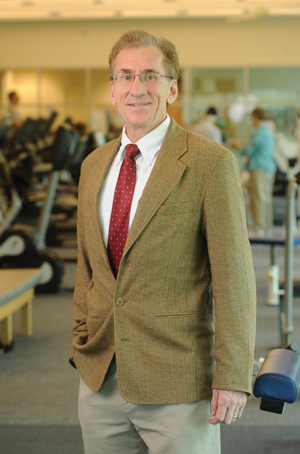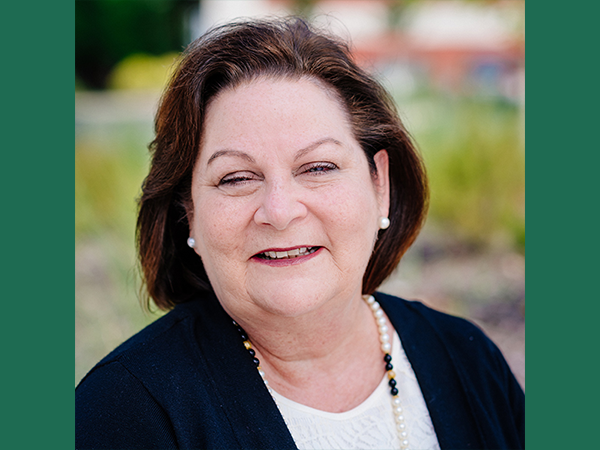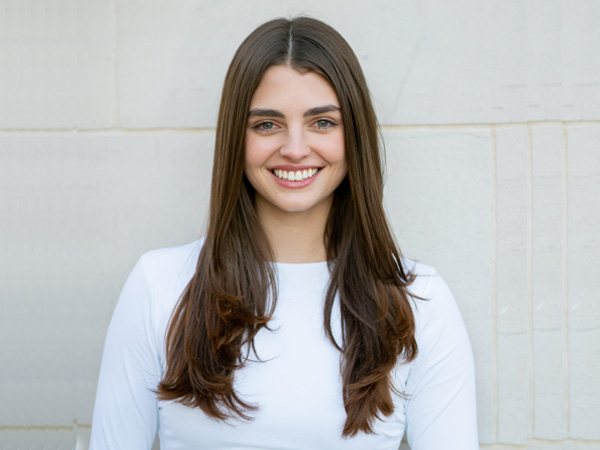 The University of Alabama at Birmingham (UAB) and Birmingham-based Lakeshore Foundation have partnered on an initiative made possible by a $6-million, five-year grant from the National Institute on Disability and Rehabilitation Research to find ways to improve health outcomes among disabled persons.
The University of Alabama at Birmingham (UAB) and Birmingham-based Lakeshore Foundation have partnered on an initiative made possible by a $6-million, five-year grant from the National Institute on Disability and Rehabilitation Research to find ways to improve health outcomes among disabled persons.
People with disabilities have some of the highest rates of physical inactivity in the United States, according to James Rimmer, Ph.D., Lakeshore Foundation Endowed Chair in Health Promotion and Rehabilitation Sciences at the UAB School of Health Professions.
“Twenty-five million Americans have a mobility impairment, and this group remains one of the most physically inactive and obese groups in our society,” Rimmer said. “Some studies have indicated that disabled people on average spend 18 hours a day sitting down or lying down, and one in six are completely inactive 24 hours a day.”
To combat the problem, UAB and Lakeshore Foundation are creating the Rehabilitation Engineering Research Center on Exercise and Recreational Technologies and Exercise Physiology Benefiting People with Disabilities, or simply RecTech.
“There are a number of barriers that inhibit physical activity in people with disabilities,” said Rimmer, who is also the director of the UAB/Lakeshore Research Collaborative.
Walking outdoors is the single most common activity for the general population. But walking may not be a good option for promoting health and well being in people with physical disabilities due to functional limitations and safety issues, as well as natural and built environment barriers. Transportation issues, access to community fitness facilities and even high unemployment/underemployment rates are additional barriers, Rimmer explained.
RecTech will involve the UAB schools of Health Professions and Engineering along with private industry including Push Product Designs and Red Mountain Labs. It will combine the latest discoveries in technology, rehabilitation science, exercise physiology and engineering to reduce barriers to physical activity. The center’s target population is adults and youths with neuromuscular or mobility disabilities such as spinal cord injuries, Parkinson’s disease, cerebral palsy, spina bifida, multiple sclerosis and stroke.
"Twenty-five million Americans have a mobility impairment, and this group remains one of the most physically inactive and obese groups in our society."
“The key R&D projects include improving access to recreation and exercise venues and equipment, increasing opportunities for people with disabilities to participate in beneficial exercise, using technology to support greater adherence to regular exercise, and promoting regular exercise and active lifestyles for people with disabilities as a way to improve health and function,” said Rimmer.
“Having this Rehabilitation Engineering Research Center located in Birmingham presents another great opportunity for UAB and Lakeshore Foundation to build upon our early successes and further develop our new Research Collaborative into a world-class research program,” said Lakeshore Foundation President Jeff Underwood.
Rimmer says individual projects in the center will range from adapting activity monitors for use by people with manual wheelchairs to developing video-based virtual exercise environments that allow people with physical disabilities to work out together even if they live in different parts of the country.
Other projects might involve adaptation of sensors and game controllers to allow youths with disabilities to participate in currently inaccessible active video games and include the development of universal design standards for accessible fitness equipment and fitness facilities.
Rimmer also plans a state-of-the-science conference in exercise/recreation technology, an online RecTech wiki, and a series of webinars and electronic newsletters promoting new knowledge in exercise science, engineering and recreation.
“We hope the center creates a roadmap for interested researchers, practitioners and students to address critical gaps in research and development in exercise science, engineering and technology for those with physical disabilities,” said Rimmer. “The benefits of regular physical activity are well understood in promoting overall mental and physical wellness. This center will find new ways to help people with disabilities overcome the barriers that so often prevent them from securing those benefits.”

